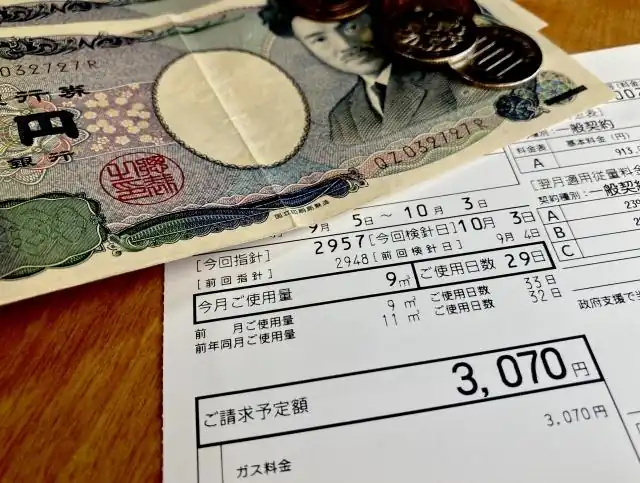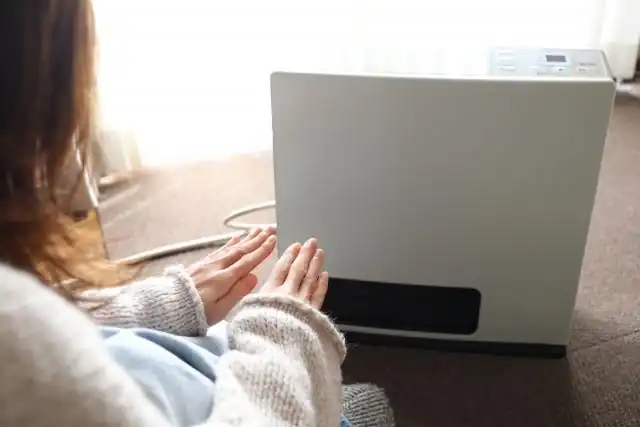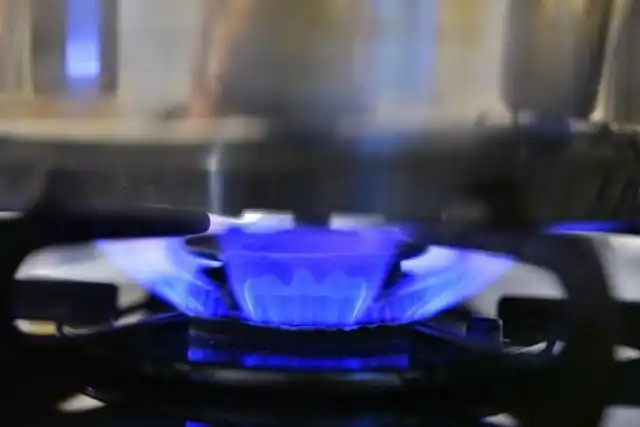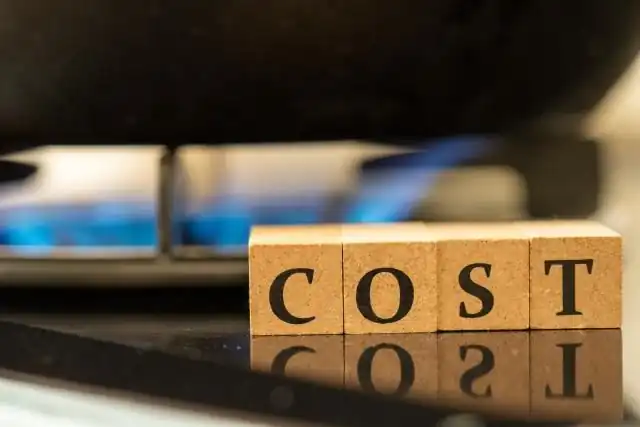“What is the average gas bill to be expected for a person living alone?”
“I want to save on gas bills, but I’m not sure how”
“Is there a difference in costs between city gas and propane gas?”
A lot of people wonder about the gas bill for a person living alone. “Gas bill” is one of the monthly utility bills that we have no choice but to pay despite how expensive it is. However, without understanding gas bills, you might end up getting charged more than you accounted for.
In this article, we will discuss the average gas bills for a person living alone, seasonal adjustments in gas bills, and tips to save on gas bills.
For those searching for rental apartments to live in by yourself, please take a look at the Village House website. We offer numerous affordable and magnificent properties all across Japan.
An average gas bill for a person living alone

According to a household survey conducted by the Ministry of Internal Affairs and Communications in 2022, the average gas bill for a person living alone is ¥3,331 per month, which amounts to ¥39,972 annually. However, gas bills and usage fees vary depending on lifestyle, environment, and season.
As per the survey, the seasonal breakdown of gas bills for a person living alone is as follows:
| Monthly Average Cost: | |
| January to March | ¥3,892 |
| April to June | ¥3,387 |
| July to September | ¥2,345 |
| October to December | ¥2,777 |
Gas bills tend to be higher from January to March. There’s approximately a ¥1,500 difference compared to gas bills from July to September.
Reasons why gas bills vary depending on the season and increase during winter

Gas bills tend to increase during the cold winter months and decrease during the hot summer months. This is because the colder season period results in higher hot water usage and increased thermostat settings, leading to higher gas consumption. Moreover, the use of gas-powered heaters and underfloor heating systems could increase your gas bills.
Differences between city gas and propane gas

There are two types of gas: city gas and propane gas. The gas bills vary depending on the type of gas used. Generally, propane gas tends to be more expensive than city gas. Therefore, if you have access to city gas, it will be more likely to reduce your monthly gas bills.
However, both city gas and propane gas have their advantages and disadvantages, so please choose after considering everything. Gas companies may have different basic fees and offer their contract plans; thus, it is important to compare them before making a selection as reviewing your contract plan may help you save on gas bills.
Advantages and Disadvantages of City Gas
The main advantage of city gas is its lower cost compared to propane gas. City gas is supplied through underground gas pipes connected to each household, eliminating the need for gas cylinders. This means that you don’t have to worry about installation space even if your home has limited space.
On the other hand, the initial cost of city gas tends to be higher than that of propane gas. In areas where gas pipes are not installed, new gas pipe installation will be necessary. Another disadvantage of city gas is that recovery tends to be delayed in the event of a disaster.
Advantages and Disadvantages of Propane Gas
The advantages of propane gas are that it can be supplied with just the installation of gas cylinders and the initial cost is not as high as city gas. Propane gas is also easy to install and is used nationwide. Furthermore, in the event of a disaster, propane gas can be recovered more quickly compared to city gas.
On the other hand, the disadvantage of propane gas is the need for outdoor space to install gas cylinders. In addition, propane gas also tends to cost much more compared to city gas.
In the next section, we will discuss methods to save on gas bills.
How to save on gas bills: 1. Around the kitchen

- Prepare ingredients using the microwave:
When cooking vegetables, pre-cook them in the microwave to save time and prevent them from losing their shape. Similarly, when cooking meat, sear it in a pan before finishing cooking it in the microwave to save on gas.
- Wipe off any water droplets on pans and pots before cooking:
If you only have one pan or pot, you will need to wash it after every time you use it. If there are still water droplets on the surface, it will require more gas to evaporate them before cooking. Thus, wipe off any water droplets with a cloth or kitchen paper before cooking in order to save on gas. In addition, pots with flat bottoms conduct heat more efficiently, leading to more effective gas usage.
- Adjust the heat and contain it within the edge of the pot or pan:
According to a survey by the Agency for Natural Resources and Energy, simply adjusting the heat so that it doesn’t exceed the edge of a pan or pot when cooking can save 2.38㎥ of gas per year.
- Minimize hot water usage:
Either in the bathroom or washroom, excessive hot water usage can increase gas bills. Therefore, reducing the frequency of hot water usage when not necessary is effective in saving gas. For example, when washing dishes or cooking utensils, use hot water only for items with oil stains and use cold water for everything else. It is also recommended to use an electric kettle that boils quickly for making coffee or tea.
How to save on gas bills: 2. Bathrooms and washrooms

- Turn off the shower frequently
Since using the shower consumes gas, it is important to turn off the shower frequently to stop the water running continuously while you’re washing your body or putting on shampoo. In addition, replacing the shower head with a more water-saving one can also be an effective measure. Water-saving shower heads reduce the amount of hot water used, making us save not only on gas bills but also on water bills. However, it is important to consider that there may be drawbacks when selecting such a product including reduced water pressure or lower water temperature.
- Lower the temperature of the shower
Increasing the temperature of the shower by 1 degree can cost about ¥0.2 per minute in gas bills. Therefore, lowering the temperature by 1 degree from your usual usage can save on gas bills.
- Reduce the frequency and amount of hot water
The cost of the gas needed for filling a bathtub is about ¥54.61 for city gas and about ¥107.60 for propane gas. If you take a bath every day, you will need about ¥1,638.30 for city gas and about ¥3,228 for propane gas per month (30 days). Additionally, adding hot water for reheating will increase the gas bill accordingly, so reducing the number of baths can lead to significant savings on gas bills.
Moreover, the more hot water you use, the more costly the gas bill will be. Even though soaking your body fully in a bathtub may be relaxing, it also poses a risk of putting excessive strain on the heart. To avoid putting such strain on your body, it is recommended to use a moderate amount of hot water in the bath while striving to save up and minimize waste.
How to Save on Gas Bills: 3. Changing the gas company

Changing the gas company, you have a contract with can also help you save on gas bills. Since gas liberalization began in April 2017, households are now allowed to choose not only propane gas but also city gas. It is advisable to compare the basic fees and unit prices of gas companies before making a decision.
At Village House, security deposits, key money, handling fees, and renewal fees are all free. In addition, ¥30,000 is included as moving support, which is a great deal! If you would like to keep your initial costs as low as possible, please feel free to contact us.
※Depending on the contract details and screening results, a security deposit may be required.
Related articles:
- 9 Practical Tips to Save On Your Electricity Bill During Winter
- Top 5 Tips on How You Can Keep Your Monthly Expenses on Food As Low As ¥20,000!
- Does Cooking At Home Actually Help Save You Money When You Live Alone? Top 5 Tips on How To Succeed!
- Is Living Alone on a Monthly Income of 120,000 Yen Possible? Estimated Living Expenses and Tips for Saving Money

Hello, I’m Machiko Doi, a freelance writer who writes about housing and living in Japan.
I live in an 80-year-old house that I inherited from my grandparents along with my two shelter cats and daughter.
We live a relaxed life while repairing the house.
I like to cook vegetables from the garden and fresh fish caught by my father, and enjoy them with cold beer on a hot day or hot sake on a cold day.



